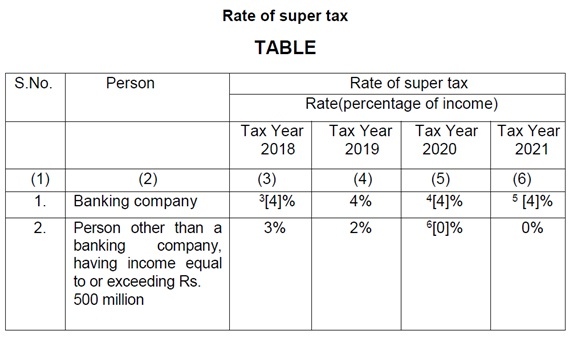KARACHI: Honda Atlas Cars (Pakistan) Limited on Thursday said that super tax to hammer the already thin margins of the auto business in the country.
The company in its detailed financial report said: “The imposition of Super Tax will further hammer the already thin margins of auto business.”
The company said that the automobile industry is considered as one of the key sectors for rapid transformation of the economy.
READ MORE: Suzuki Motors warns plant shutdown in Pakistan
Likewise, the automobile industry of Pakistan epitomizes considerable growth, capacity building and technological prowess.
“The current state of auto sector, however, has matured differently through the quarter under review. Adverse USD/PKR exchange rate parity and global supply glitches continue to undermine the Industry’s potential throughout,” it said.
Moreover, the fiscal measures adopted by the State Bank of Pakistan (SBP) for the management of foreign reserves has unavoidably impacted the import and production schedules lately.
READ MORE: Indus Motors rebuts plant shutdown reports
Rupee devaluation has approached an alarming level under the vague economic and political direction; further aggravating the situation.
“Resultantly, the car customers are facing delays in delivery, hikes in prices and temporary non- availability of some car variants,” the company said.
Honda Atlas Cars said during the period under review, the sales and production of the four-wheeler segment have not been up to the Industry’s expectation owing to curbed auto lending, escalating inflation and soaring fuel prices.
The overall industry production for the three months ended June 2022 remained 71,745 units in comparison with 53,915 units a year ago while car sales were observed at 73,815 units against 46,679 units during the same period.
READ MORE: Toyota Indus Motors offers 100% refunds on booking cancellation
The company produced 9,324 units against 7,826 units and sold 9,446 units as compared to 7,598 units in the same period of last financial year.
The recently approved Federal Budget 2022-2023 also poses tough times ahead for the auto industry. Amid negotiations with International Monetary Fund (IMF), to release the bailout package, the Government had to enforce stringent stabilization measures. Accordingly, the purchase of automobiles with engine capacity exceeding 1300CC has now been subject to 1 per cent of Capital Value Tax (CVT).
The advance tax on vehicles with engine capacity above 1600CC has also been significantly increased.
These revenue measures by the Government will further burden the customers, which may affect the Industry’s sales volume.
READ MORE: Toyota lowers July production in Japan
The imposition of Super Tax will further hammer the already thin margins of auto business.
The auto industry may experience a further slowdown in anticipation of price revision and rising interest rates.
Ranging from raw material sourcing to management of stable commodity pricing and customary lead time, the automobile industry is currently in the midst of multiple challenges.
During the quarter, the OEMs have managed to avoid potential shut down of production due to relatively higher stock levels. This led to improved financial results for the 1st quarter of the new financial year.
During the three months ended June 30, 2022, the Company achieved net sales revenue of Rs 30,246 million as compared to Rs 21,765 million in the corresponding period last year.
Higher production volumes with better overhead absorption helped to generate gross profit of Rs 1,915 million against Rs 1,595 million, a year ago. The selling and administrative expenses were increased to Rs 575 million against Rs 363 million.
Other income improved to Rs 526 million against Rs 335 million owing to customers’ confidence on the Company’s products and better funds management; benefited by increased interest rates.
The Company posted Rs 1,094 million as profit before tax in comparison to Rs 1,364 million. After statutory tax adjustments, including super tax provision, the net profit for the three month period ended June 30, 2022 came out Rs 658 million as compared to Rs 928 million of the corresponding period last year.
The earning per share remained Rs 4.61 against Rs 6.50 for three months of the last year.





